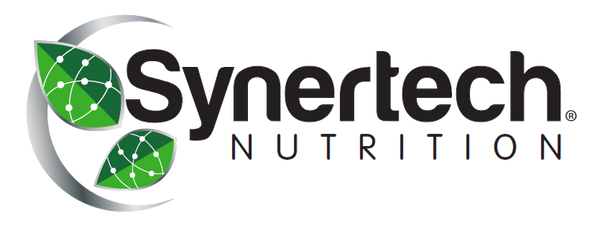
Proposition 65 (more commonly abbreviated to Prop 65) is a California law officially titled as the Safe Water and Toxic Enforcement Act.
“Proposition 65 requires businesses to provide warnings to Californians about significant exposures to chemicals that cause cancer, birth defects or other reproductive harm. These chemicals can be in the products that Californians purchase, in their homes or workplaces, or that are released into the environment. By requiring that this information be provided, Proposition 65 enables Californians to make informed decisions about their exposures to these chemicals.” OEHHA California
The law’s initial intent was to address public concerns with water pollution in the mid-1980s. Over the years, the list of chemicals applicable to Prop 65 continues to grow.
Additionally, so have lawsuits and warnings to those that do not label their products with the Prop 65 warning.
Why is this scary Proposition 65 warning on your product?
Non-California residents may be shocked to see a sticker, label, or notice of a Prop 65 warning. There are plenty of examples on social media of consumers sharing these dangerous looking warnings and outraged that their recently purchased product contains potentially dangerous elements.
However, for California residents, these stickers and warnings are everywhere and on everything to avoid potential lawsuits.
Most buildings will have a Prop 65 warning, including the happiest place on earth, Disneyland.

Disneyland Prop 65 warning (Source: Patrick Pelletier, Wikimedia)
Even parking garages post Prop 65 signs warning visitors about breathing the air.

Required parking garage Prop 65 warning from Anaheim, California.
There are countless examples of Proposition 65 stickers and label warnings on clothes, food products, household furniture, and general goods across the internet.

Prop 65 warning on metal table sold in California.
So, there is lead in my food?! Prop 65 on Food and Dietary Supplements
Low levels of lead can be common in supplement products. While these low levels are in the acceptable range set forth by the United States Food and Drug Administration, they fall outside the levels dictated by California’s Proposition 65 labeling requirements (again, a proposition originally built for safe water applications - not food). Organic pea protein and organic cocoa powder are two common ingredients that naturally tend to have lead levels that may exceed the Proposition 65 guidelines.
Why is that? Because many of the chemicals that are listed under Prop 65’s guidelines exist in the soil. The big three? Cadmium, arsenic, and lead. The amounts required for labeling under Prop 65 are far smaller than those set by the US FDA, European food and safety organizations, and other regulatory bodies. Thus, even naturally occurring trace amounts of these chemicals would meet the labeling threshold required for California residents.
The key takeaway for readers here: The Prop 65 requirements, originally designed for water safety, are FAR stricter than the current US FDA and other regulatory agency requirements for food and dietary supplements.
Additionally, the levels of lead in common grocery foods, including staples like kale, spinach, and apples may exceed the Prop 65 threshold. For example. Kroger is being sued for lead level in its spinach product for exceeding Prop 65’s labeling requirements.
There are so many examples of the legal battles in California around these regulations with very common food and drinks that most consumers would be surprised by:
- The Washington Post: Coffee in California may soon come with a spoonful of cancer warnings
- California may apply Prop 65 warning to hemp
- Tasting Table: The Real Reason California Has Lead Warnings on So Many Snacks
- Food Processing: California Proposition 65 is Unfair to Food and Beverage Processors
So why do people outside of California see these warnings?
The simplest reason – it is cost prohibitive to manage multiple SKUs or different labels for items shipped to (or out of) California. This is especially the case for businesses in California where the majority of their customers are local.
Even more dangerous can be items sold outside of California finding their way back to California without appropriate labeling. With the ease of reselling across channels like Amazon, there is a chance that inventory missing the Prop 65 warning can find its way back to California consumers. This can then open the business up to a lawsuit.
Thus, many businesses in California (including us) preemptively label their products with the Prop 65 warning for all sales channels to avoid these complications.
Synertech Nutrition remains committed to quality and transparency
We at Synertech Nutrition care about food quality and testing as core missions of our business. We third party test everything that we produce with accredited laboratories.
Additionally, we would rather pre-emptively label applicable products with the Proposition 65 warning to avoid potential legal issues that have plagued our industry. Even though products like our pea protein test below the Prop 65 threshold (as of the time of this writing), organic products by their nature can have swings in flavor and product content. We would rather act transparently than roll the dice and take a chance with the legal system or your health awareness.
You can learn more about Synertech Nutrition products here!
Additional Links:
California P65 Warnings on Foods: https://www.p65warnings.ca.gov/fact-sheets/foods
Link to Disneyland Prop 65 Picnic Picture: Credit Patrick Pelletier, Wikimedia
Disclaimer:
The above information does not constitute legal advice or guidance. The above information is general analysis and links presented to consumers, especially those residing outside the State of California, confused by Proposition 65. Please do your own research using the additional links above or your own searching and reading. These statements have not been evaluated by the Food and Drug Administration. Any product(s) mentioned are not intended to diagnose, treat, cure, or prevent any disease(s).

